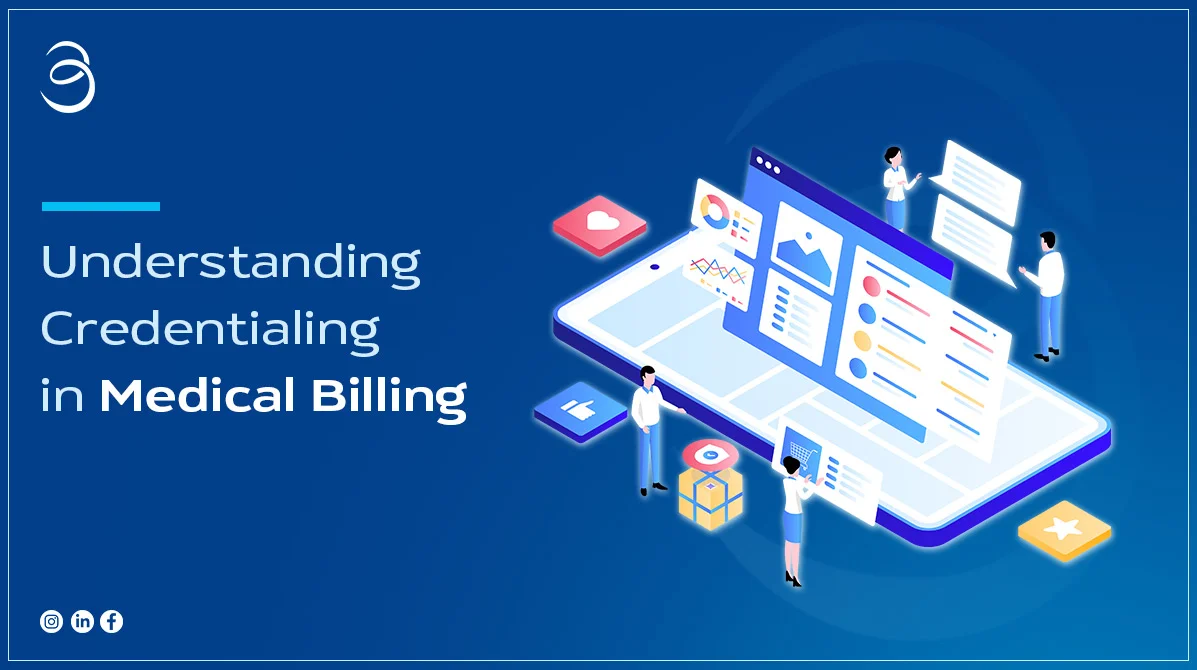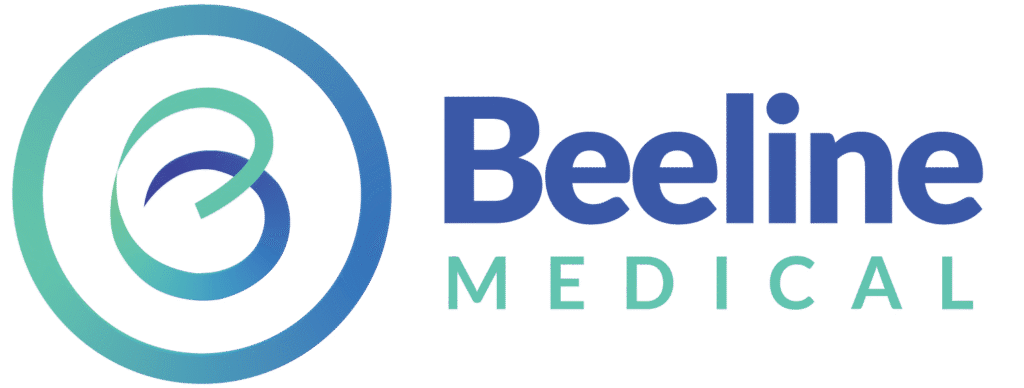
Top 10 Revenue Cycle Management Companies Transforming Healthcare Billing and Payments
In the globalized healthcare sector, medical billing is crucial in ensuring that medical service providers receive timely payments. However, credentialing is one aspect of this process, which is critical in the healthcare field yet needs more attention. This process guarantees that only competent and legally allowed healthcare practitioners offer medical services.
In this blog, we will discuss what credentialing in medical billing means, why it is important, and the advantages of credentialing for both the provider and the patient. Furthermore, we shall explore how Beeline’s Medical Billing services can help healthcare institutions in this maze.
What Does Credentialing Mean?
Credentialing has a broad meaning. It encompasses the process of reviewing and evaluating information about practitioners’ licenses and practice experience, including their academic background, training, licensure, employment experience, and accreditation or specializations. The aim is to ensure adequate measures are in place to guarantee that the providers satisfy the required threshold for safe patient care.
In medical billing, credentialing is significant when enrolling a provider with third-party payors such as insurance companies and others. Doing so may lead to providers not being paid for the services they offer because of improper credentialing. This process also plays a critical role in protecting the integrity of the healthcare system by ensuring that only qualified and competent professionals are part of the network.
How Credentialing Works
Obtaining the necessary accreditation can be complex and may take several months to complete. It typically involves the following steps:
- Submitting Your Application: The healthcare provider completes and signs an application that contains educational documentation, employment records, and professional recommendations from at least three references.
- Primary Document Validation: The credentialing organization confirms the accuracy of the information submitted by contacting the educational institutes, licensing boards, and other relevant organizations.
- Qualification Review Process: The provider’s qualifications are verified against the healthcare facility or insurance company’s set standards. This may include ensuring no prior dismissal or suspension was issued or any previous complaints or adverse reports
- Approval and Enrollment: When the provider meets all the eligibility requirements recognized by the insurance, they are contracted into the insurance network. This enables them to bill insurance firms for services given to patients, if any.
- Re-credentialing: Credentialing is not a one-time process. Providers must periodically reapply for re-credentialing to meet the required standards.
Why Credentialing Matters?
Credentialing is essential for several reasons:
- Guarantees Quality Care: Reviewing the credentials of healthcare practitioners ensures that only competent healthcare practitioners are allowed to treat patients. This is important for the proper functioning of healthcare facilities and for ensuring human life safety.
- Facilitates Smooth Billing Operations: Proper credentialing is very important for healthcare providers to be paid by insurance companies. Otherwise, the providers may receive denials and/or reimbursement delays, which can pose a problem for their practice’s financial viability.
- Fosters Trust: Credentialing fosters trust between patients, providers, and payers. Consumers can be assured that professionals are treating them efficiently, while payers can be guaranteed that they are dealing with competent caregivers.
- Adherence to Regulations: Credentialing is often mandatory by law. Healthcare facilities and providers must adhere to these regulations to practice legally and avoid legal penalties.
Challenges in the Credentialing Process
Credentialing, nonetheless, is vital for healthcare providers and facilities, although the process might be quite complex. Some of the common challenges include:
- Time-Consuming Process: The credentialing process can be quite time-consuming and often takes several months to complete. This can be quite cumbersome, especially for new providers who wish to begin treating patients and being reimbursed by insurance companies.
- Detailed and Diverse Requirements: Credentialing policies in insurance companies and healthcare facilities may differ. These requirements may sometimes be numerous, and tracking them and ensuring compliance might take a lot of time.
- Potential for Rejection: Failure to produce accurate and complete data in the credentialing application results in denials or delays. This can impact a provider’s capacity to start seeing patients and generating revenue.
- Continuous Monitoring: Credentialing is not a one-time activity. Providers must be aware of re-credentialization requirements and ensure they are still compliant.
Benefits of Partnering with Beeline’s Services
As one of the leading companies in the industry, Beeline Medical LLC acknowledges the complexities of the credentialing process and the challenges that healthcare providers go through. Our team of experts specialises in credentialing services, and these professionals can assist providers in overcoming these challenges. From initial application submission to the ongoing re-credentialing phase, we take care of all of it, relieving our clients of the stress of getting properly enrolled so they can focus on providing quality care to their patients.
Our Beeline’s Credentialing & Enrollment services include:
- Expert Application Guidance: We help procure and submit all essential documents required in credentialing.
- Direct Verification of Primary Sources: Our team thoroughly verifies all the submitted documents directly to meet the set industry standards.
- Post-Submission Support and Follow-Up: We follow up with insurance companies and credentialing bodies on the status of the applications and any complications that may be encountered.
- Re-credentialing Management: We manage the re-credentialing process to ensure providers stay active with insurance networks.
In addition to our credentialing services, we offer comprehensive Revenue Cycle Management solutions that streamline the entire billing process, optimize cash flow, and reduce healthcare providers’ administrative burdens.
By collaborating with Beeline, you can facilitate more credential management to enhance efficiency, minimise possible errors, and ensure timely reimbursement of healthcare service providers.
Summary and Recap
Credentialing is a critical process involved in medical billing, aiming to ensure that healthcare providers are qualified to offer safe and effective care. It enables the determination of quality of care, acting as an interface regarding reimbursement and developing trust between the patient and the payers. While the process can be slow and frustrating sometimes, do not worry, as our credentialing services at Beeline Medical LLC are here to help. This relieves healthcare providers to focus on what they can do best – ensuring quality healthcare for their patients. Furthermore, we provide end-to-end Patient Engagement solutions that improve overall patient communication and experience, from making appointments to follow-up visits.
For further details and to learn more about our services and how we can help with credentialing, feel free to visit Beeline Medical LLC’s Homepage, which offers our broad spectrum of medical billing services.
FAQs
- What is credentialing in medical billing?
Credentialing verifies a healthcare provider’s qualifications to ensure they can bill insurance companies and deliver safe patient care.
- Why is credentialing necessary for healthcare providers?
Credentialing is essential to verifying that providers meet the required standards, ensuring quality care, and enabling them to receive payments from insurance companies.
- How long does the credentialing process take?
Depending on the provider’s credentials and insurance company requirements, it typically takes several weeks to a few months.
- What documents are needed for credentialing?
Required documents often include medical licenses, educational certificates, work history, malpractice insurance, and references.
- Can a provider start seeing patients before credentialing is complete?
While providers can see patients, insurance companies may only reimburse them once the credentialing process is completed.
- What happens if credentialing is denied?
If credentialing is denied, providers may need to address the issues identified, such as missing documentation or discrepancies in their application, and reapply.
- How often is re-credentialing required?
Recredentialing is typically required every two to three years, depending on the insurance company’s policies and the provider’s credentials.
- Do all insurance companies have the same credentialing requirements?
No, credentialing requirements vary between insurance companies. Each company may have specific criteria and documentation needs.
- What services are provided at Beeline Medical LLC company?
Beeline’s Medical LLC services include Revenue Cycle Management, Patient Engagement, Denials Management, Patient Engagement, Charge Entry, Payment Posting and Coding services. Visit Beeline Services for more information.
- What sets Beeline Medical LLC apart?
Beeline Medical LLC offers personalised, comprehensive medical billing solutions, specializing in providing effortless task delivery and coordination.
